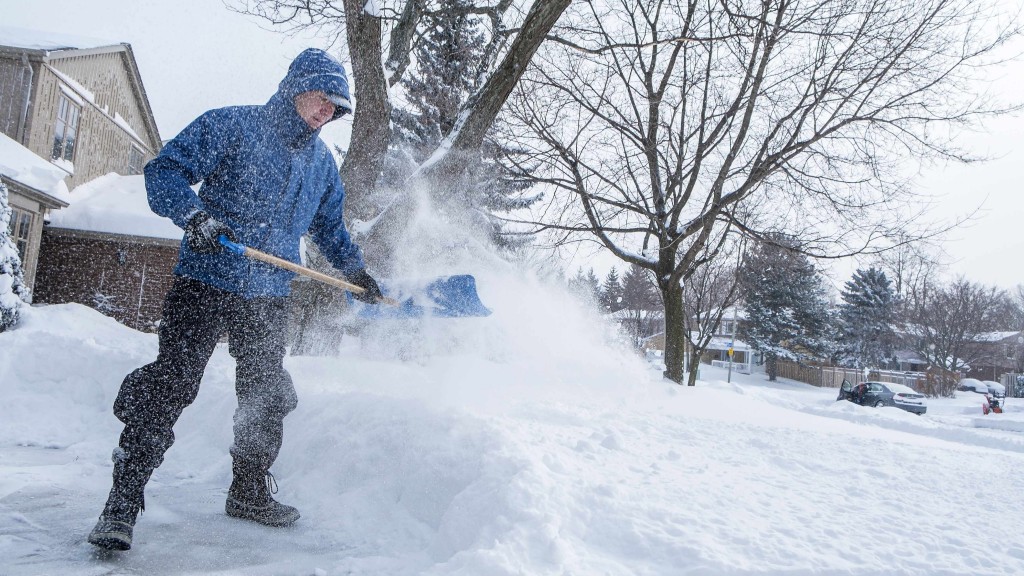-
Health & Wellness
Winter storm and safe shoveling

A major winter storm is blanketing the Upper Midwest and that means people will soon be shoveling significant amounts of snow from driveways and sidewalks.
Health care providers at Mayo Clinic Health System in La Crosse, Wis. are urging caution when shoveling because ignoring the signs of overdoing it could mean ending up in the emergency department.
Here are some tips for shoveling snow safely:
- Be heart-conscious.
“If you have a history of heart problems and are inactive, it's best to speak with your health care provider before shoveling,” says Melanie Young, physician assistant, emergency department at Mayo Clinic Health System. “Also, don't shovel while smoking, eating or after consuming caffeine. This may place extra stress on your heart. - Dress warm.
Wear several layers of clothing. You can always remove a layer, if needed. - Drink plenty of water.
Remaining hydrated during the winter is just as important as when it's warmer. - Warm up your arms and legs.
Stretch your arms and legs before beginning to shovel. You are less likely to injure muscles when your muscles are warm. - Take it slow.
Pace yourself and take breaks if needed. Safety is more important than speed. - Protect your back.
“Bend at the knees, not the back. Lift with your legs bent, stand with your feet hip-width apart for balance and keep the shovel close to your body,” adds Brian Langenhorst, registered occupational therapist and ergonomics specialist at Mayo Clinic Health System. “Also, don't pick up too much snow at once if the snow is wet.” - Shovel while snow is fresh.
Freshly fallen snow is lighter than snow that has started melting. - Listen to your body.
This is the most important snow shoveling tip. If something feels abnormal or if you're tired, it's time to stop. - Know who to call in an emergency.
If you are experiencing an emergency, call 911 immediately.
# # #
Mayo Clinic Health System consists of clinics, hospitals and other facilities that serve the health care needs of people in Iowa, Minnesota and Wisconsin. The community-based providers, paired with the resources and expertise of Mayo Clinic, enable patients in the region to receive highest-quality physical and virtual health care close to home.
Related Articles

Gastroenterology






